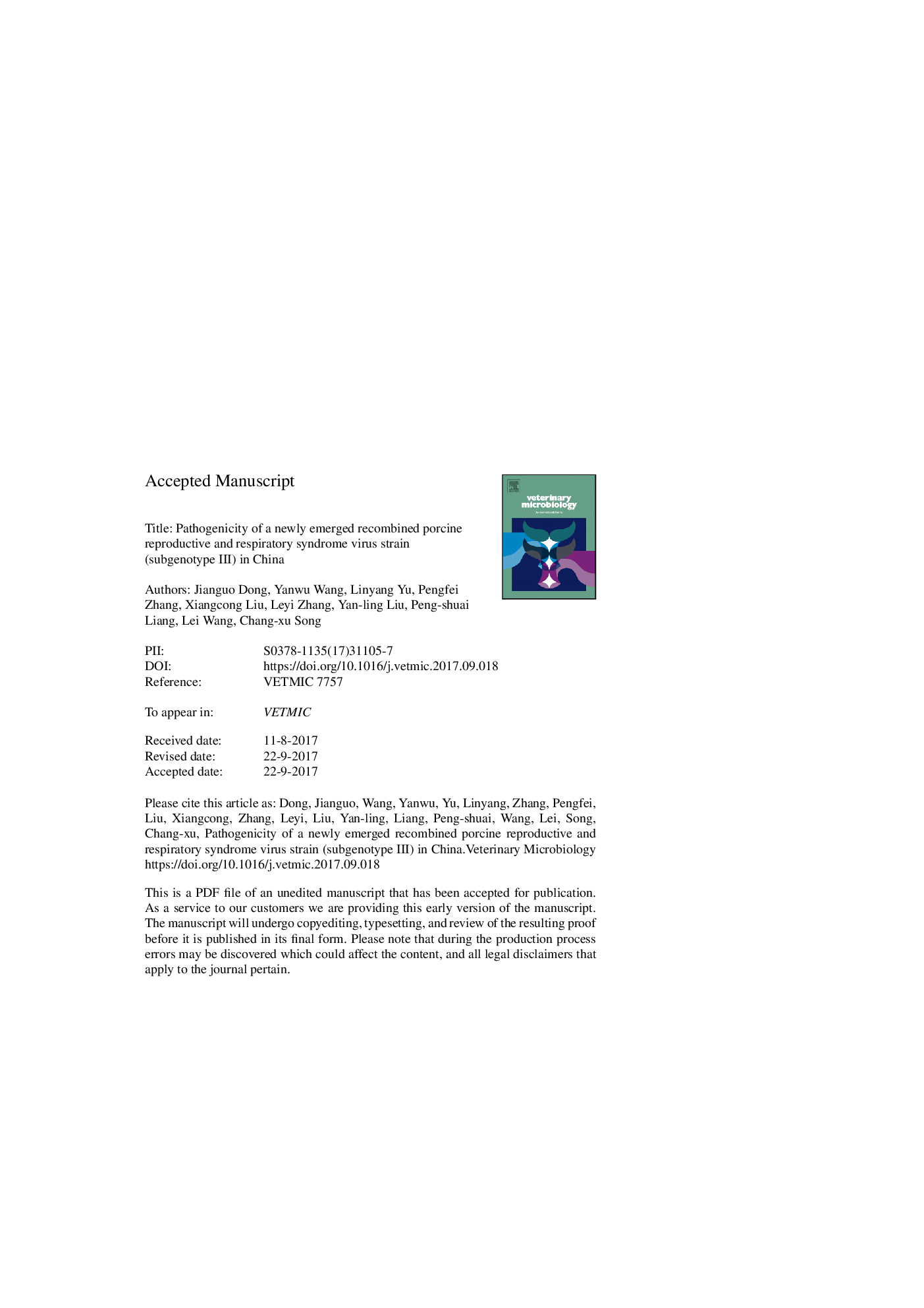| Article ID | Journal | Published Year | Pages | File Type |
|---|---|---|---|---|
| 8505754 | Veterinary Microbiology | 2017 | 22 Pages |
Abstract
Porcine reproductive and respiratory syndrome virus (PRRSV) is a severe pathogen that causes enormous economic losses to the swine industry worldwide. Since its first report in the 1980s, PRRSV has undergone extensive variation. In the previous study, we demonstrated that the GDsg strain was a new recombined virus between the low pathogenic field strain QYYZ and the vaccine strain JXA1-P80, belonging to the newly emerging type 2 PRRSV subgenotype III. In this study, the pathogenicity of a new recombined strain GDsg for pigs was analyzed. The results of in vivo experiments indicated that GDsg could cause persistently high fever, severe interstitial pneumonia, and high viremia and antibody levels in inoculated piglets. In particular, the brains of inoculated pigs exhibited serious hemorrhage and microscopic lesions. These results suggested that compared with the low pathogenic field strain QYYZ and the vaccine strain JXA1-P80, the new recombined GDsg strain had higher virulence in pigs. This study will help to characterize the relationship between recombination and evolution of PRRSV.
Related Topics
Life Sciences
Agricultural and Biological Sciences
Animal Science and Zoology
Authors
Jianguo Dong, Yanwu Wang, Linyang Yu, Pengfei Zhang, Xiangcong Liu, Leyi Zhang, Yanling Liu, Pengshuai Liang, Lei Wang, Changxu Song,
